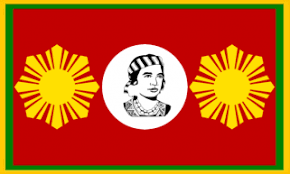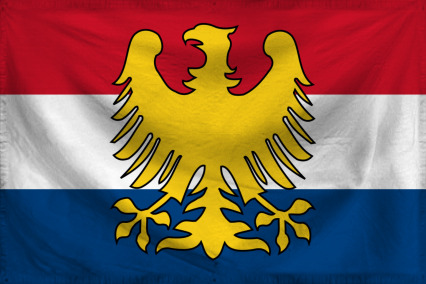Freedom in the Multiverse
Make sure to answer honestly. Questions are freeform, a simple yes or no may not always suffice.
Nation: Confederation of the New Visayan Islands
A1. Was the current head of government or other chief national authority elected through free and fair elections? Yes for the President; members of the Federal Council are appointed by the President subject to Senate confirmation.
A2. Were the current national legislative representatives elected through free and fair elections? Yes.
A3. Are the electoral laws and framework fair, and are they implemented impartially by the relevant election management bodies? Yes.
B1. Do the people have the right to organize in different political parties or other competitive political groupings of their choice, and is the system free of undue obstacles to the rise and fall of these competing parties or groupings? Yes.
B2. Is there a realistic opportunity for the opposition to increase its support or gain power through elections? Yes at the legislative level; historically possible at the executive level.
B3. Are the people’s political choices free from domination by forces that are external to the political sphere, or by political forces that employ extrapolitical means? Yes.
B4. Do various segments of the population (including ethnic, religious, gender, LGBT, and other relevant groups) have full political rights and electoral opportunities? Yes.
C1. Do the freely elected head of government and national legislative representatives determine the policies of the government? Yes.
C2. Are safeguards against official corruption strong and effective? Yes.
C3. Does the government operate with openness and transparency? Yes.
D1. Are there free and independent media? Yes.
D2. Are individuals free to practice and express their religious faith or nonbelief in public and private? Yes.
D3. Is there academic freedom, and is the educational system free from extensive political indoctrination? Yes.
D4. Are individuals free to express their personal views on political or other sensitive topics without fear of surveillance or retribution? Yes.
E1. Is there freedom of assembly? Yes. While the COVID-19 pandemic has brought limitations, the government has taken steps to balance limitations related to health and safety with economic, civil, and political concerns.
E2. Is there freedom for non governmental organizations, particularly those that are engaged in human rights– and governance-related work? Yes.
E3. Is there freedom for trade unions and similar professional or labor organizations? Yes.
F1. Is there an independent judiciary? Yes.
F2. Does due process prevail in civil and criminal matters? Yes.
F3. Is there protection from the illegitimate use of physical force and freedom from war and insurgencies? Yes.
F4. Do laws, policies, and practices guarantee equal treatment of various segments of the population? Yes.
G1. Do individuals enjoy freedom of movement, including the ability to change their place of residence, employment, or education? Yes.
G2. Are individuals able to exercise the right to own property and establish private businesses without undue interference from state or nonstate actors? Yes.
G3. Do individuals enjoy personal social freedoms, including choice of marriage partner and size of family, protection from domestic violence, and control over appearance? Overall yes.
G4. Do individuals enjoy equality of opportunity and freedom from economic exploitation? Yes.
Internet Freedom Report
Make sure to answer honestly. Questions are freeform, a simple yes or no may not always suffice.
Nation:
A1. Do infrastructural limitations restrict access to the internet or the speed and quality of internet connections? No.
A2. Is access to the internet prohibitively expensive or beyond the reach of certain segments of the population for geographical, social, or other reasons? No.
A3. Does the government exercise technical or legal control over internet infrastructure for the purposes of restricting connectivity? No.
A4. Are there legal, regulatory, or economic obstacles that restrict the diversity of service providers? No.
A5. Do national regulatory bodies that oversee service providers and digital technology fail to operate in a free, fair, and independent manner? No.
B1. Does the state block or filter, or compel service providers to block or filter, internet content? No.
B2. Do state or nonstate actors employ legal, administrative, or other means to force publishers, content hosts, or digital platforms to delete content? Yes, subject to specific limitations; court orders are required before affected content can be deleted. In almost all cases, content deleted is criminal in nature: egregious cases of copyright infringement and child pornography are the leading categories of content deleted by court order.
B3. Do restrictions on the internet and digital content lack transparency, proportionality to the stated aims, or an independent appeals process? No on all counts.
B4. Do online journalists, commentators, and ordinary users practice self-censorship? No.
B5. Are online sources of information controlled or manipulated by the government or other powerful actors to advance a particular political interest? No.
B6. Are there economic or regulatory constraints that negatively affect users’ ability to publish content online? No.
B7. Does the online information landscape lack diversity? No.
B8. Do conditions impede users’ ability to mobilize, form communities, and campaign, particularly on political and social issues? No.
C1. Do the constitution or other laws fail to protect rights such as freedom of expression, access to information, and press freedom, including on the internet, and are they enforced by a judiciary that lacks independence? No.
C2. Are there laws that assign criminal penalties or civil liability for online activities? Yes, in the case of criminal activity carried out online such as fraud, dissemination of child pornography, etc.
C3. Are individuals penalized for online activities? Only if said activity is a criminal offense.
C4. Does the government place restrictions on anonymous communication or encryption? No.
C5. Does state surveillance of internet activities infringe on users’ right to privacy? No; the State requires a warrant before it can conduct surveillance on a citizen's internet activity.
C6. Are service providers and other technology companies required to aid the government in monitoring the communications of their users? Only when a court order is provided.
C7. Are individuals subject to extralegal intimidation or physical violence by state authorities or any other actor in retribution for their online activities? No.












